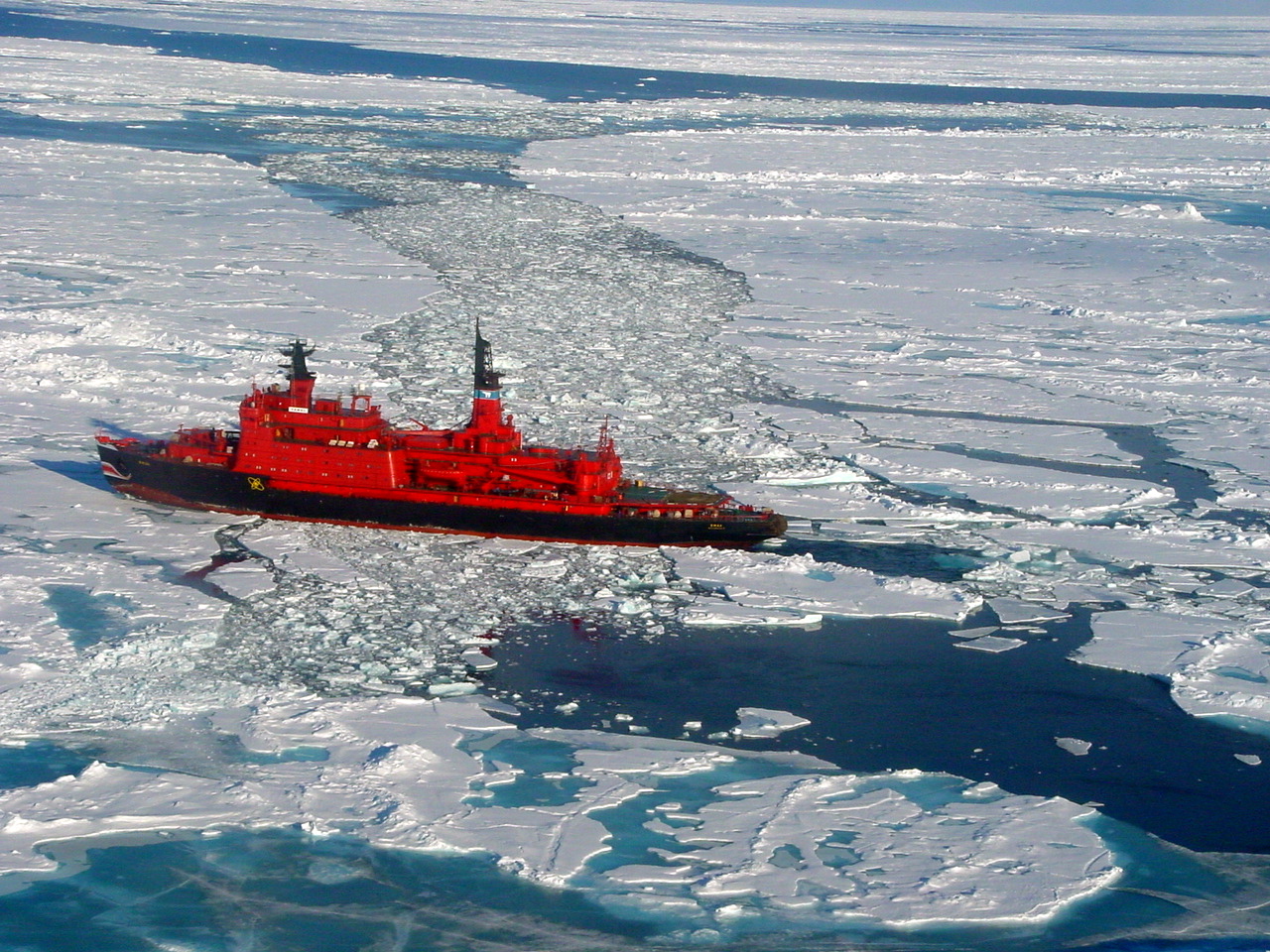Moscow, Beijing and Washington in Artic Challenge
The Russians have been the most decisive in responding to Trump's advances on Greenland, proving that the Arctic is a strategic interest. As of 2019, Moscow has expanded its coastal zones in the direction of the North Pole and is targeting the northern maritime corridor for trade with China. And it may seek a division of the pie with the tycoon's America.
Moscow (AsiaNews) - When Donald Trump, now newly installed in the White House, said a few days ago that he would love to take Greenland, instead of shrugging off the American tycoon's grotesque irony, the Russians were immediately alarmed.
The Kremlin spokesman Dmitry Peskov immediately reacted with a solemn statement that ‘the Arctic area is a strategic interest for Russia, and we intend to stay there for a long time’.
Oil, gas, the activities of the nuclear agency Rosatom, and military bases on polar ice are proof enough of the Kremlin's great attention to the region that overlooks the entire world.
Russia's Roskongress foundation, which gathers foreign investors, assures that more than 80 per cent of Russia's entire gas supply lies in the Arctic, and as of 2019 Russia has even expanded its coastal zone by 1.2 million square kilometres in the direction of the North Pole.
The waters of the Arctic are not only used to drill surfaces for useful minerals to be extracted, but also to place military bases and control the routes of cargo ships.
The Russians use these bases to test nuclear weapons of limited power and long-destination missiles, and in 2021 Putin established the Northern Fleet as an autonomous district of the Russian army.
Rosatom controls the entire northern maritime corridor, where a large commercial transport plan from China to St. Petersburg is being organised, and the Russian Fesco (Far-Eastern Shipping Company) under the control of the military has already been set up.
Every year, China increases the volume of its cargoes along this directive, and Russia in return builds nuclear icebreakers for the Chinese, so much so that China also calls itself the ‘superpower of the Arctic’.
Now it will be interesting to see how Russia, China and the US will really divide up the territory, either through economic agreements or through forms of conflict, hopefully not leading to more ‘special military operations’.
The Northern Sea Corridor reduces the duration of transport between China and Europe by one and a half times and avoids passing south through the Suez Canal, which is increasingly unsafe for shipping.
Since 2007, the Russian Ministry of Natural Resources has declared, following an expert expedition, that Russia holds the rights to the ‘Lomonosov Ridge’; this is a ridge discovered by the Russians in 1948 that crosses the central part of the Arctic Ocean, passing almost under the Polar Circle for an extension of 1. 800 kilometres, from the islands of Novosibirsk to the island of Ellesmere, in the part of the Arctic archipelago on Canadian territory, for a width of between 60 and 200 km at over 3,000 metres above the ocean floor.
Canada's foreign minister, Peter Gordon MacKay, replied at the time in rather resentful tones that ‘this isn't the 15th century, you can't cross the world and plant flags’, but Russia hasn't given up putting them all along the way.
Trump's statements on the purchase of Greenland, which were already voiced during his first presidential term, do not concern particular US actions in this direction, but still sound like the phrases of an economic lobbyist, the new president's core business.
The question now is whether these claims will be effectively followed up by the countries concerned, beyond public statements. The Russians seem rather favourable to a division of the pie with Trump's America, whose ‘practical sense’ they praise, and by dividing the Arctic they could find ways to divide the whole world without submitting to the Chinese.
Trump has actually never been very willing to divide anything, seeking first and foremost his own interest; but Russia now acts outside the recognised international rules, both in terms of economics and geography, and does not want to subject itself to official recognition of zones of influence, as it currently considers the ‘neutral territory’ of the Arctic, where Moscow is preparing weapons to break the bank.
Photo: Wikipedia / Wofraz
07/02/2019 17:28







.png)










